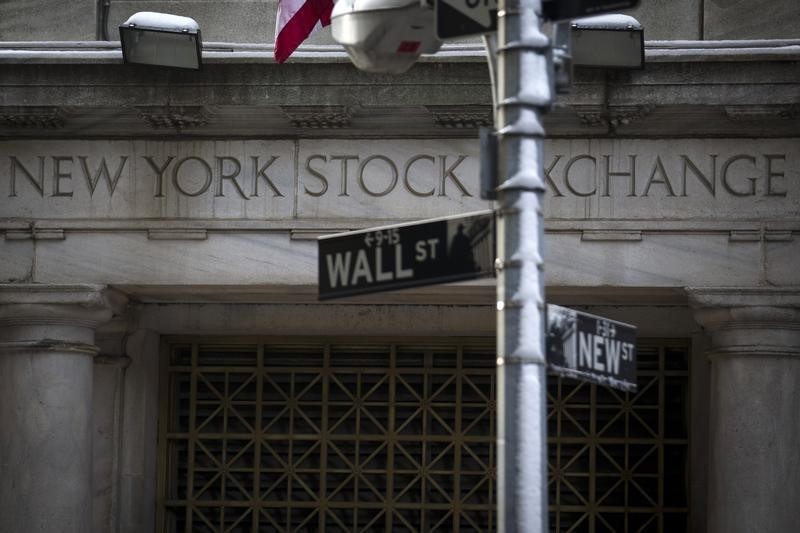By Yasin Ebrahim and Kim Khan
Investing.com - The Covid-19 pandemic is pushing and pulling the markets into all kinds of uncharted territory.
Even those just looking at the major equity indexes would have a tough time looking away from the screens this week, where big moves on small amounts of information were common.
While bulls cheered this week’s action, there were already questions about whether the bears could really be gone. The consumer was predictably downbeat, but how did that compare historically? And is even looking at current economic data an antiquated idea?
Here are three things that flew under the radar this week.
1. Wall Street Debates Bottom as Wild Swings Continue
The wild ride on Wall Street continued this week as the Dow's slump on Friday, did little to take the shine off its best week since 1938. The milestone arrived after a three-day rally through Thursday saw the index end its three-week bear market, its shortest on record, stoking hopes that the bottom may be in.
But some on Wall Street remain wary of calling a bottom.
Goldman Sachs (NYSE:GS) identified two conditions that need to be met before any talk of market bottom can be taken seriously: The pace of Covid-19 infections will have to flatten in the U.S. and Europe and visibility will needed on how long the two respective economies will take to recover.
But there is little hope the pace of infection is nearing the end game. The U.S. has seen surge in infections this week, surpassing that of Italy and China.
Meanwhile, several companies in the U.S. and Europe have recently pulled their guidance, underscoring the lack of visibility on the impact of the virus.
The wave of stimulus rolled out by the federal government and the Federal Reserve, however, has some convinced the market has bottomed.
"I found the rally off the bottom in the few couple days impressive. I think it’s gone as far as it should go," billionaire investor Lee Cooperman told CNBC. "The market is in the zone of fair valuation. Until we get more of a handle on the virus, I would think that one should be very defensive."
2. No Silver Bullet for Sentiment
The University of Michigan’s consumer sentiment index’s final March reading was the biggest drop since the Great Recession in 2008, down 11.9.
But a more comparable decline was likely the 11.8-point drop after the invasion of Kuwait in August 1990, the survey publishers said.
In that case, sentiment had turned around by March 1991, when the reading posted an all-time gain of 17.3 points. The two readings bookended the 1990-1991 U.S. recession.
The index can be expected to decline further in the months ahead, like in 1990, but any sort of bounce-back is uncertain.
“The extent of additional declines in April will depend on the success in curtailing the spread of the virus and how quickly households receive funds to relieve their financial hardships,” the university said. “Mitigating the negative impacts on health and finances may curb rising pessimism, but it will not produce optimism.”
“There is no silver bullet that could end the pandemic as suddenly as the military victory that ended the Gulf war.”
3. A Fog Rolls in Over the Data
When it comes to economic data, there is also the possibility that we’re in a new landscape where the old rules don’t apply, and we don’t even know it.
The March U.S. employment report is coming Friday, April 3. Normally this would be a must-see event. But maybe investors would be better served spending the time on something else.
University of Michigan Economics Professor Justin Wolfers speculated on a Twitter thread Thursday that the numbers aren’t going to be reliable for a while.
The jobs report will be on “data on unemployment and payrolls from the 2nd week of March which is before the coronavirus shutdown,” Wolfers tweeted. “So we need to wait six weeks, until May 8, when we'll get numbers on the April labor market.”
GDP won’t capture the major effects until the Q2 release, which is July 30, and managers can reply any time for ISM March numbers, so that won’t be a true picture, he added.
Relying on initial claims? The unemployment insurance landscape will completely change with the fiscal stimulus package, he said.
“Point is, social isolation has so completely changed economic life that the historical relationship of any individual indicator with the state of the economy has likely shifted, perhaps dramatically,” Wolfers said.
“Bottom line: We're sailing into an economic data fog.”
